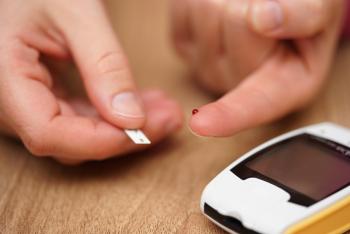Managing diabetes involves more than blood sugar control—it also requires diligent wound care to...
Read More
Despite being twice as likely to develop diabetes as women, men are more inclined to ignore the warning signs of diabetes because they’d rather not ask for help. But going to the doctor isn’t a sign of weakness; it’s a chance to prevent your condition from worsening.
Of the 34 million Americans living with diabetes, 95 percent have type 2 diabetes. “Type 2 diabetes develops when the body does not use insulin—which regulates the body’s sugar levels—correctly, and sugar begins to saturate the bloodstream. Over time, the body shuts down because of a sugar overload,” said an Inspira endocrinologist.
Currently, there is no cure for type 2 diabetes; however, knowing the signs and symptoms can help prevent diabetes from causing chronic pain and even permanent damage to your heart, eyes and nerves.
“Men avoid seeking treatment because they fear receiving a diagnosis or feel vulnerable at screenings,” said an Inspira endocrinologist. “Men believe they are strong and therefore must be impervious to life-threatening illnesses; but if they come in when something doesn't feel right instead of waiting for an emergency situation, they can catch the disease at a more treatable stage.”
Diabetes prevention and treatment starts with being aware of the warning signs characteristic to men, such as more frequent urination, blurry vision, weight loss and erectile dysfunction.
The goal of diabetes treatment is to balance your blood sugar levels. Whether you are at risk of developing diabetes or were recently diagnosed, lifestyle changes can not only prevent diabetes, but can also supplement medication for people with diabetes.
“Especially if you have a family history of diabetes, live a sedentary lifestyle or are obese, lifestyle changes can prevent your condition from worsening,” said an Inspira endocrinologist. Medications and targeted drug therapies have proven to help people at risk for or who are living with diabetes lose weight and balance their blood sugar levels. But it is always a good idea to discuss the right care plan for your needs with your doctor.
“In some cases, medication is a necessity; however, sometimes, lifestyle changes can act as a preventive measure and become a long-term benefit for your overall health,” an Inspira endocrinologist. The smallest changes make the biggest impact; for example:
“Type 2 diabetes can be prevented or delayed,” said an Inspira endocrinologist. “So you must remember: Your body is a machine. To keep it running effectively, you need to pay attention when the lights pop up on the dashboard—and for men, that means coming into the office at the first sign that something is wrong.”

Managing diabetes involves more than blood sugar control—it also requires diligent wound care to...
Read More
Discover the lesser-known type 1.5 diabetes, often misdiagnosed as type 2, and learn how to...
Read More
Discover how high blood sugar impacts your body, from dental complications to kidney damage, and...
Read More